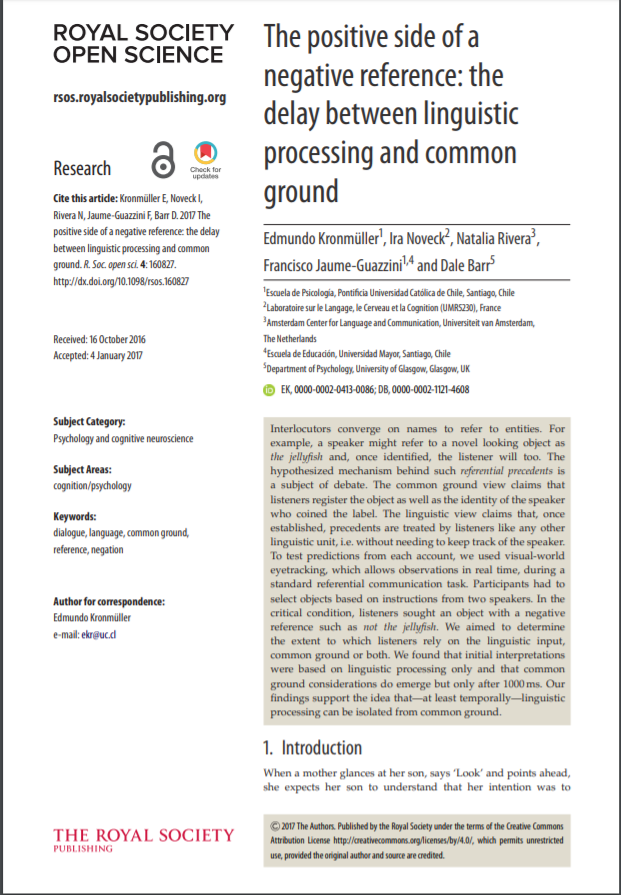The positive side of a negative reference: The delay between linguistic processing and common ground

Fecha
2017Autor
Kronmüller E., Noveck I., Rivera N., Jaume-Guazzini F., Barr D.
Jaume-Guazzini, Francisco [Escuela de Educación, Universidad Mayor, Chile]
Ubicación geográfica
Notas
HERRAMIENTAS
Acceda a títulos restringidos
¿Cómo descargar?Resumen
Interlocutors converge on names to refer to entities. For example, a speaker might refer to a novel looking object as the jellyfish and, once identified, the listener will too. The hypothesized mechanism behind such referential precedents is a subject of debate. The common ground view claims that listeners register the object as well as the identity of the speaker who coined the label. The linguistic view claims that, once established, precedents are treated by listeners like any other linguistic unit, i.e. without needing to keep track of the speaker. To test predictions from each account, we used visual-world eyetracking, which allows observations in real time, during a standard referential communication task. Participants had to select objects based on instructions from two speakers. In the critical condition, listeners sought an object with a negative reference such as not the jellyfish. We aimed to determine the extent to which listeners rely on the linguistic input, common ground or both. We found that initial interpretations were based on linguistic processing only and that common ground considerations do emerge but only after 1000 ms. Our findings support the idea that-at least temporally-linguistic processing can be isolated from common ground.
URI
https://www.ncbi.nlm.nih.gov/pmc/articles/PMC5367312/pdf/rsos160827.pdfhttps://dx.doi.org/10.1098%2Frsos.160827
https://royalsocietypublishing.org/doi/10.1098/rsos.160827
http://repositorio.umayor.cl/xmlui/handle/sibum/6926
Coleccion/es a la/s que pertenece:
Si usted es autor(a) de este documento y NO desea que su publicación tenga acceso público en este repositorio, por favor complete el formulario aquí.